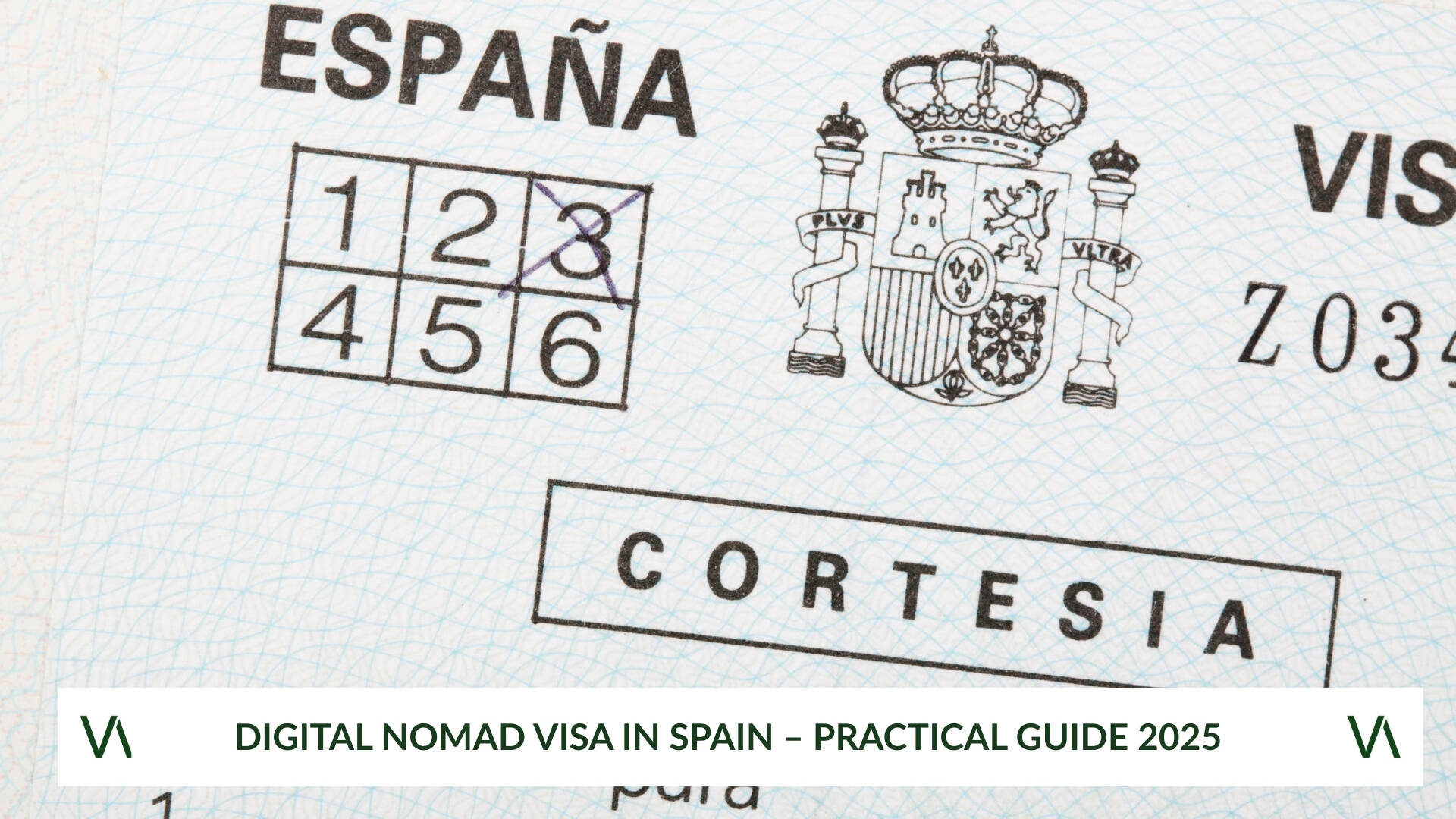Digital Nomad Visa in Spain – Practical Guide 2025
Are you a digital professional working remotely for foreign clients or companies? Spain now offers a legal pathway to live and work from here: the digital nomad visa. In this guide, we explain how it works, the eligibility criteria, and the tax benefits you should know about.

Spain has officially joined the group of countries working to attract international talent. Since the approval of the Startup Law, non-EU remote workers can now apply for legal residency to live and work from Spain. This visa offers a stay of up to 5 years, with tax benefits, a streamlined application process, and the possibility to bring your family with you.
What does this visa allow?
The digital nomad visa allows you to live legally in Spain while working remotely for foreign companies or serving international clients. Depending on where you apply from:
-
From your home country (Spanish consulate): You can obtain a 1-year visa, which is extendable.
-
From Spain (as a tourist): You may apply directly for a 3-year residence permit, renewable for up to 5 years.
It also grants freedom of movement within the Schengen Area, the ability to include your spouse and children in your application, and your years of residence will count toward Spanish nationality or long-term residence status.
Who is eligible?
There are two main applicant profiles:
-
Employees under contract with a foreign company that authorizes remote work and has operated for at least 1 year.
-
Freelancers or self-employed professionals who work for clients or companies outside Spain and generate most of their income from abroad.
Key condition: Income earned from Spanish clients cannot exceed 20% of your total earnings.
Main requirements
-
Active working relationship for at least 3 months prior to applying.
-
A contract or agreement clearly stating remote work is permitted.
-
Minimum annual income: €33,151.92 (approx. $35,500 USD / €2,646 per month).
-
A university degree or at least 3 years of relevant work experience.
-
Private health insurance valid throughout Spain.
-
Criminal record certificate legalized and apostilled.
-
Declaration of a clean criminal record for the past 5 years.
-
Completed application form and administrative fee paid (Form 790 038).
Tax benefits – Special Tax Regime for Inbound Workers
One of the strongest advantages of this visa is the ability to apply for Spain’s special tax regime for inbound workers, similar to the Beckham Law:
-
Flat 24% tax rate (IRNR) on income up to €600,000.
-
No wealth tax and no requirement to file the foreign assets declaration (Form 720).
-
Ability to defer tax payments for the first 2 years (interest-free).
-
Tax regime valid for up to 5 years.
Note: This is a separate procedure from the residency process and must be requested with the Spanish Tax Agency within 6 months of receiving your residence authorization.
How to apply
-
Apply from the Spanish consulate in your home country, or
-
Apply from within Spain as a tourist.
-
Applications are submitted through the Large Business Unit (UGE).
-
A NIE number (foreign ID number) is assigned during the process.
-
The resolution time is 20 business days. If no response is received, your application is automatically approved (positive administrative silence).
-
Once approved, you must book an appointment to submit fingerprints and collect your residency card (TIE).
FAQs
How much does it cost?
– Administrative fee (Form 790 038): €73.26 (initial) / €78.67 (renewal)
How long does it take?
– 20 business days maximum
What if my application is denied?
– You can file an appeal within 1 month
Is this the same as the non-lucrative visa?
– No. The non-lucrative visa does not allow you to work, even remotely.
What is the required minimum income?
– €33,151.92 per year (€2,646/month)
Final thoughts
Spain’s digital nomad visa makes it one of the most attractive countries for remote professionals worldwide. With a streamlined process, generous tax benefits, and an excellent quality of life, it’s the ideal solution for digital professionals looking to settle legally in Spain. At Valero Tax Legal, we handle the entire application and tax planning process with clarity, efficiency, and a personalized approach.
info@valerotaxlegal.com |+34 972 697 790 |WhatsApp: +34 644 76 97 24 www.valerotaxlegal.comRELATED CONTENT
-
The VAT franchise regime: what it is, what Europe allows, and why it does not exist in Spain
A figure provided for in European regulations that could benefit thousands of self-employed workers, but which is still not applied in our country.
-
Ordinary residence in Spanish territory: general criteria and territorial particularities
Determining ordinary residence in Spain is a key aspect in tax matters. Essential tax obligations depend on this condition, both for individuals and for those who advise them. Although the legislation establishes general criteria, their application varies depending on the territorial context, and requires technical precision to ensure legal certainty
-
Updates on retirement for the year 2026
See how the calculation of the pension and the retirement age looks in 2026.
